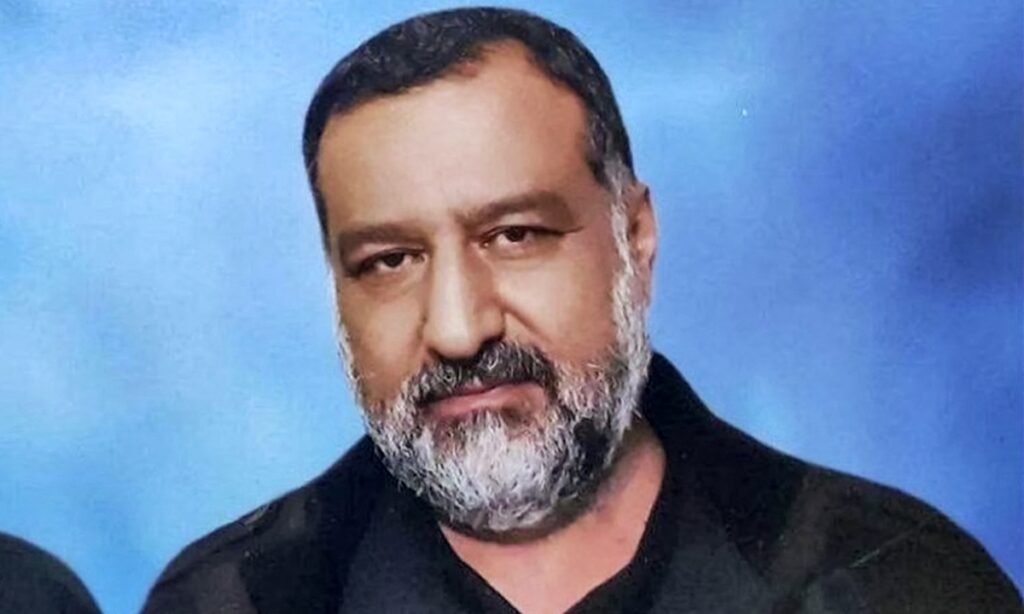Israel’s killing of a senior adviser in Iran’s Revolutionary Guard Corps (IRGC) is likely to further stimulate anti-Israel and anti-US sentiment in Iran and complicate regional conflicts, as well as the Red Sea situation, said Chinese experts.
Sayyed Razi Mousavi, a senior IRGC commander was killed after Israel launched three missiles at his position in the suburbs of the Syrian capital of Damascus, Iran’s official IRNA news agency quoted an Al Mayadeen correspondent as saying on Monday.
Iranian President Ebrahim Raisi on Monday extended condolences to the family of Mousavi. Raisi said the “malicious move by Israel was another indication of its desperation, weakness and helplessness” in the region, vowing that “Israel will definitely pay the price for its crime,” according to a statement published on the website of his office.
According to Reuters, Israel Defense Forces (IDF) spokesperson Rear Admiral Daniel Hagari said in response to a reporter’s question at a nightly press conference that “I won’t comment on foreign reports, these or others in the Middle East.” “The Israeli military obviously has a job to protect the security interests of Israel.”
Mousavi commander was “responsible for backing up the resistance front in Syria,” and was one of the comrades of the late Iranian commander Qassem Soleimani, who was assassinated in a drone strike near the Baghdad International Airport in January 2020, the IRGC’s official news outlet Sepah News quoted an IRGC statement as saying.
The statement stressed that Israel “will pay the price for this crime.”
Earlier this month, the IRGC said in a statement that two of its servicemen had been killed by Israeli forces “while conducting an advisory mission in Syria’s Islamic resistance front.”
The incident came amid fears that Israel-Palestine conflict in Gaza could expand into a wider regional one. Iran is not very likely to take aggressive and direct actions in revenge, as it is not in line with Iran’s interests right now. However, this move will further fuel the anti-Israel and anti-US sentiment in Iran, Zhu Yongbiao, executive director of the Research Center for the Belt and Road at Lanzhou University, told the Global Times on Tuesday.
Experts said the incident will surely fuel the already tense situation in the region as conflicts between Israel and Hamas, as well as Israel and Hezbollah continue. Moreover, in the Red Sea, attacks by Yemen’s Houthi militia against ships connected to Israel have raised concerns over trade route.
Iranian Foreign Ministry spokesperson Nasser Kanaani on Monday rejected the US accusation that an Iranian drone attacked a chemical tanker operating in the Indian Ocean.
He made the remarks at a press conference in Tehran while reacting to a Saturday statement by the US Defense Department, in which the US claimed that “the motor vessel CHEM PLUTO, a Liberia-flagged, Japanese-owned, and Netherlands-operated chemical tanker was struck by a drone fired from Iran.” “The US accusations are endless,” Kanaani said.
Iran is a key off-court player in the ongoing Israel-Palestine conflict, said Li Shaoxian, director of the China-Arab Research Institute at Ningxia University, adding that Iran can exert influence on the Houthi militia. “Once Iran is further provoked and decides to get involved into the current conflict, it will be a regional war,” Li warned.
The US launched Operation Prosperity Guardian last week in respond to Houthi attacks. But some European countries, such as Spain refused to participate and the UK agreed only to send a destroyer. Only one Arab country, Bahrain, agreed to join.
Different countries have varied interests in the Red Sea, making it difficult to form a unified action plan. Moreover, taking hasty actions would only lead to a confrontational situation, said Zhu, adding that countries such as Saudi Arabia are concerned that participation in the US-led patrol task force would risk its relations with Iran and provoke the Houthis.
Global Times




